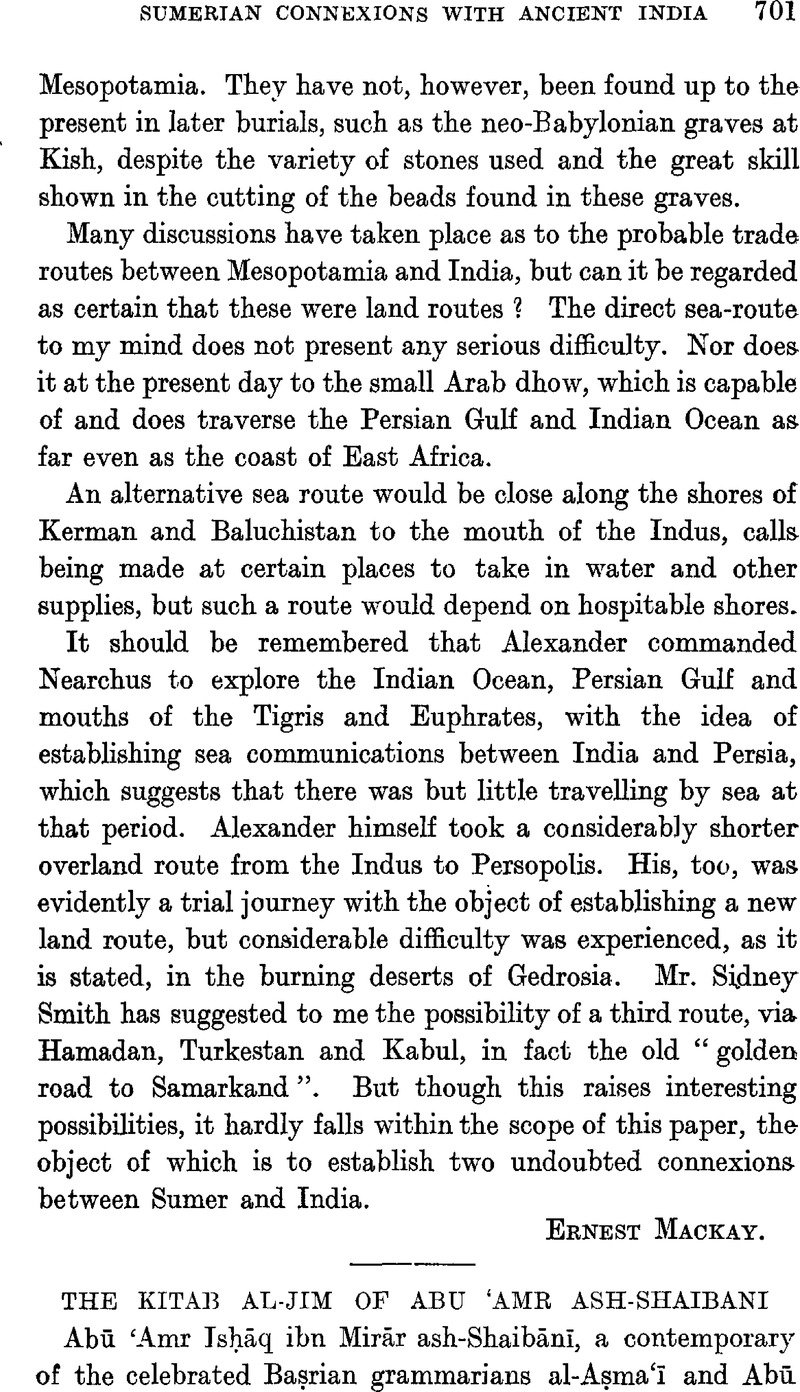No CrossRef data available.
Published online by Cambridge University Press: 15 March 2011

page 702 note 1 pp. 261 and 270.
page 702 note 2 Yāqut, Irshād, ii, 235. ![]()
page 703 note 1 p. 395 under No. 572.
page 703 note 2 Most of these tribes are well known, except Akūʻ and Farīr, the former I should have read Akwaʻ, if the word were not vocalized four times. Al-Akwa‘is a family of the tribe of Quahair. Farīr is a small clan of the tribe of Tayyi’.
page 704 note 1 Abul-Jarrāḥ is mentioned Naqaʼid, p. 374, 15. Abū Ḥizām al-‘Uklī is best known by the three poems edited in the first volume of Ahlwardt's Sammlungen, Dukain is perhaps the poet Dukain ibn Rajā’ al-Fuqaimī, Abu Ziyād is cited in the Naqaʼid, p. 735, 2, Abul-Ghamr is cited in the Mufaddaliyyāt, p. 793, 16 ; as regards Ghassān the text leaves it uncertain whether a man or the tribe is meant.
page 704 note 2 Twice instead of citing a verse Abū ʻAmr only says that a certain word occurs in a verse of al-ʻAbbās (ibn Mirdās ?) and Ḥātim respectively.
page 705 note 1 Abū Mūsā al-Ḥāmid is Sulaiman ibn MuḤammad, a Kūfi grammarian who died in the year a.h. 305 (Zubaidī, No. 80, Fihrist, p. 79, Suyūti, Bighyat, p. 262), while as-Sukkari is Abū Saʻīd al- Ḥasan ibn al-Ḥusain who died a.h. 290, and is well known as the most important transmitter of the works of the older philologers.
page 706 note 1 It ia remarkable that a philologer of the reputation of Abū ʻAmr should be found being uncertain as to the roots of the words he explains, and we find in the chapter of the letter Alif quite a number of words which begin certainly with an Alif, which, however, is not radical, though he quotes many words with radical Alif which do not begin with the letter. It is also strange that he quotes several verses which have no apparent connexion with the words explained, nor contain even a really difficult word. It is curious that on fol. II he treats us to the tale of the lizard which would not obey the lion when he was made king of the animals and successfully eluded the fox and hyena which were sent to fetch him to the king. This is followed by other tales about lizards, to explain proverbs about them.